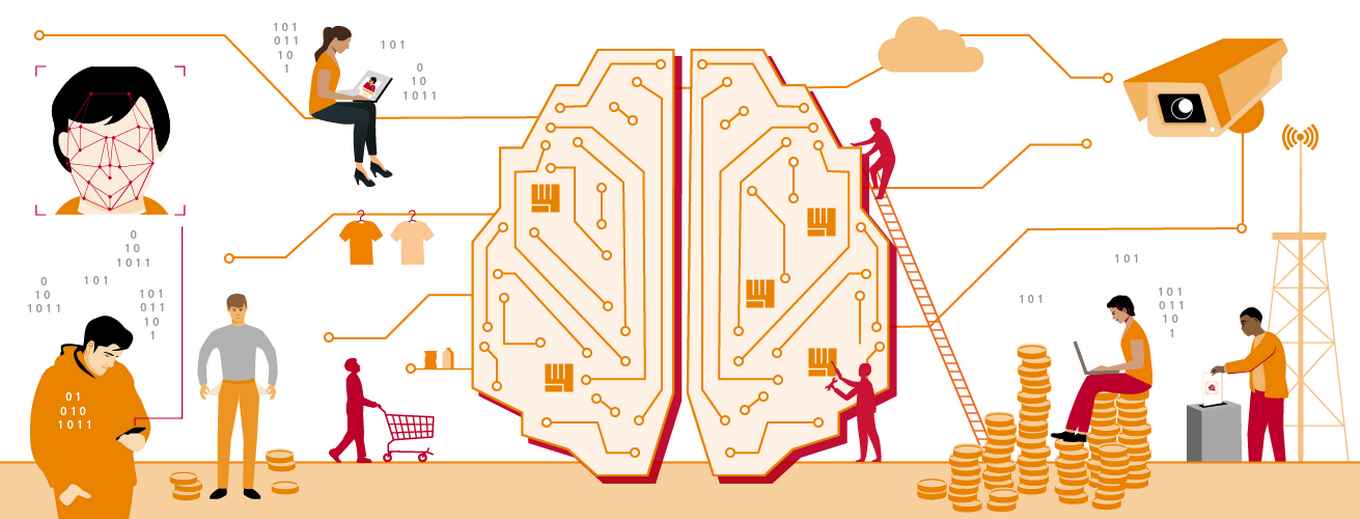We need to better understand the impact of AI on society and citizens
23 March 2021

The FMG Platform Citizens, Society and Artificial Intelligence (CiSAI) unites Social and Behavioural science researchers at the University of Amsterdam who analyse the effects of AI on societal dynamics and on the lives of individual citizens. It will function as hub to facilitate exchange and strengthen interdisciplinary collaboration. CiSAI is initiated by Daniel Mügge, Professor of Political Arithmetic at the political science department, and Claes de Vreese, university professor of Artificial Intelligence and Society and Distinguished Faculty Professor of Artificial Intelligence, Data & Democracy (and as of 1 June also university professor of Artificial Intelligence and Society).
Why do we need this platform and why now?
‘The impact of AI on society is disruptive. We need a better understanding of how AI transforms our societies, whom is most affected, why, and what the consequences are. The knowledge and approach of social and behavioral sciences are crucial in this process, states Claes de Vreese.
Power relations are reshuffled
‘Artificial intelligence reshuffles power relations across society – for example between employers and their employees, between companies and consumers, or between political campaigners and voters. The social and behavioural sciences make sense of these shifts and help us navigate them, and will shed light on the choices societies need to make as they chart a future in which AI is omnipresent’, adds Daniel Mügge. ‘Democratic governance of artificial intelligence demands that citizens can understand the societal transformations these technologies unleash.'
CiSAI themes
Specifically CiSAI will focus on the following themes:
- AI & Democracy, media and public opinion
- AI & Inequalities
- Public policy and governance of AI
- AI & Consumption
- The reconfiguration of (public) space through AI
- AI & the reorganization of the workplace
Academic insights and practically applicable findings
CiSAI will generate new academic insights and practically applicable findings. This kind of research thrives and is valorised through the interaction with non-academic stakeholders, like ministries, public authorities, and municipalities. They need to reap the benefits of AI applications while safeguarding public values and avoiding ethical pitfalls and unintended side-effects. CiSAI fuses the FMG research that speaks to these concerns and sheds light on the societal challenges involved.
Contact
For questions about the platform, please refer to one of the coordinators: Daniel Mügge (D.K.Muegge@uva.nl), or Claes de Vreese (C.H.deVreese@uva.nl).